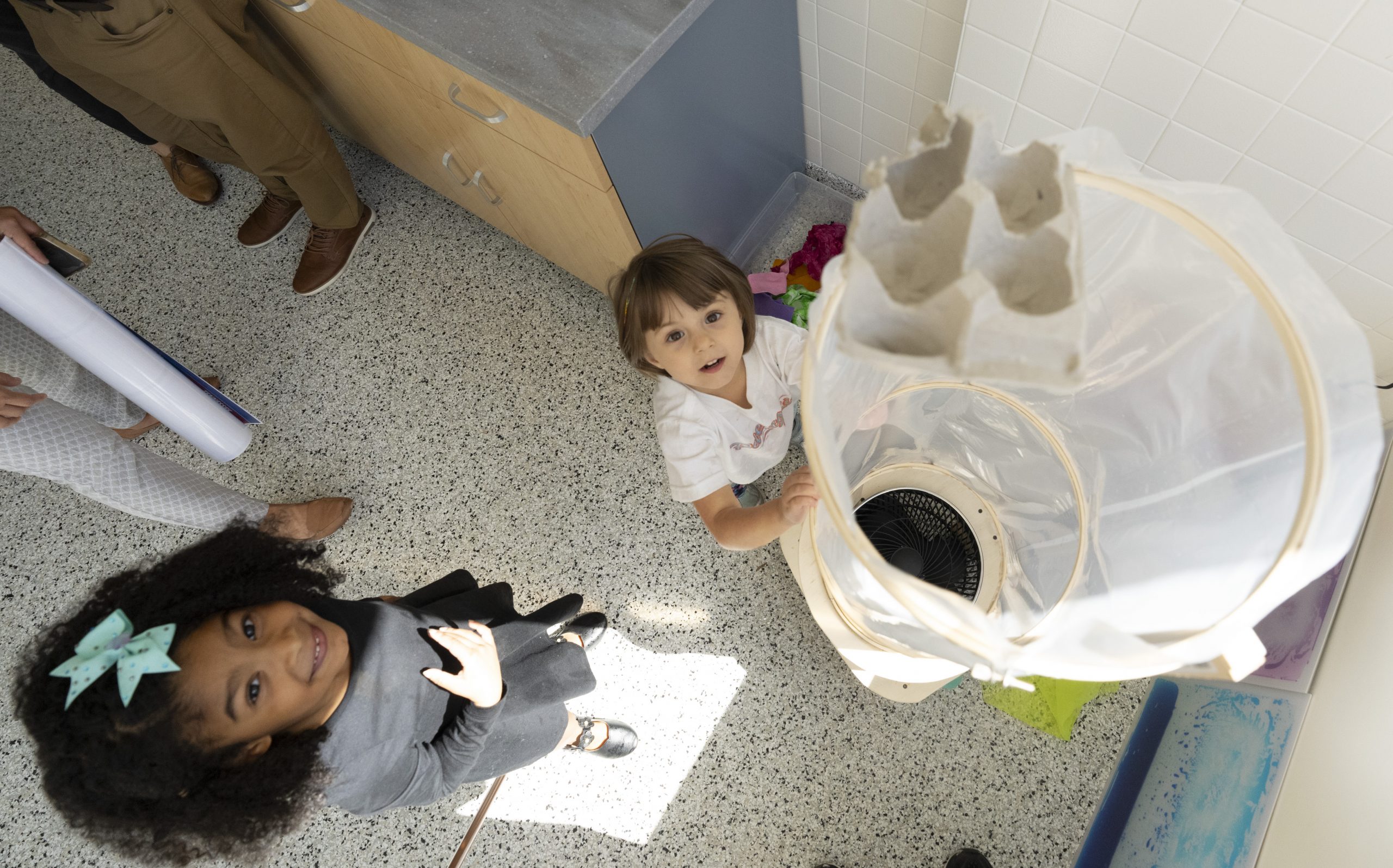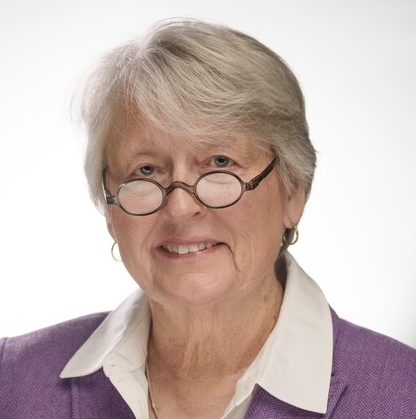By Jenna Somers and Krystal Schmidt
Toddlers may not be the first people who come to mind when thinking about scientists at Vanderbilt University, but that is exactly who the little tykes at the Susan Gray School are. The preschool recently opened a new STEM laboratory for kids ages one to five to explore a range of scientific fields, from physics to structural engineering and even coding!
In the lab’s interactive centers, kids can travel to other worlds near and far as viewed through microscopes and telescopes. They can become atmospheric scientists studying the power of wind in a wind tunnel or architects and structural engineers designing buildings that can withstand the tremors of an earthquake table. They can program robots to follow color-coded directions on coding boards and test whether objects sink or float in a water table. The school also plans to offer a museum-grade water table for children to explore manipulating the movement and force of water.

“The STEM lab offers children of all abilities the opportunity to explore cause and effect by manipulating objects and the environment within these interactive centers,” said Katherine Newman, director of the Susan Gray School, which educates children with disabilities alongside typically developing children.
“We also work with about 200 families across Davidson County, so we’re planning to invite them to do their developmental therapy in the STEM lab. We’ll welcome classes from The Acorn School at Vanderbilt to play at the lab and students majoring in early childhood and elementary education in the Departments of Teaching and Learning and Special Education to do projects with our kids and explore STEM teaching practices.”

As part of their annual community action project, high school students at the School for Science and Math at Vanderbilt (SSMV) collaborated on the design of the STEM lab with Newman and Susan Gray School teachers. They also designed and built the lab’s garden box. One side of the box is made of plexiglass so that the kids can learn about the growth process. They will be able to see the seeds they plant, roots taking hold in the soil, and plants sprouting and blossoming.
SSMV students like Calista Pointer—now a Vanderbilt second-year student—were key community volunteers who learned valuable lessons in educational design.
“As a soon-to-be elementary education student, I wanted to take the opportunity to give back to the community and contribute to the learning of young children,” Pointer said. “Collaborating on the design for the STEM lab with my classmates was an insightful experience into what goes into making an inclusive and safe space for learning.
“It also exposed us to a new skill: woodworking. After carefully planning, designing, and building the garden box, our group got to see a different side of educational design and create a product that would be interactive and engaging for years to come.”


Honoring 50 years of service to Peabody
In October, faculty and staff from Vanderbilt Peabody College of education and human development and the Susan Gray School came together to honor the leaders who spearheaded the lab initiative, Sharon Shields, PhD’76, senior associate dean at Peabody College and professor of the practice of human and organizational development, and Katherine Osten, BSN’73. They conceptualized and funded the STEM lab, turning the school’s old kitchen into a space that will enhance the inclusive learning environment of the Susan Gray School.

“For those of us who know Sharon and Kathy well, their commitment to designing and funding the Susan Gray School STEM lab comes as no surprise,” said Camilla Benbow, Patricia and Rodes Hart Dean of Education and Human Development. “They are some of the most dedicated members of the Peabody community, who reflect our mission to educate all learners. I am grateful for their enduring legacy at Peabody.”

Newman says the idea for the STEM lab is rooted in Shields’ 50-year career in education focused on community service-learning and civic engagement initiatives and Osten’s 40-year career as a critical care nurse.
Likewise, the STEM lab honors the legacy of Katherine Newman’s father, John Newman, a Vanderbilt doctor who instilled in Katherine a love of science from an early age. He passed away while the lab was being created, and his colleagues, family, Shields, and Osten donated to the lab in his memory.

“As George Peabody wrote, ‘Education is a debt due to future generations,’” Sheilds said. “It is truly an honor to work with the teachers, staff, and children at the Susan Gray School to create a STEM lab that will enhance children’s’ learning and imaginations to see what is awe-inspiring in this wonderful world through science, technology, engineering, and math.”
As a student-teacher in the early 1970s, Shields created a lab for her middle school students. Later, while working on her doctorate in health and physical education at Peabody College, she created a lab in the Wyatt Center. As a faculty member, she co-founded the Kim Dayani Human Performance Center, a rehabilitation center—akin to a living lab—for adults with medical conditions. Most recently, as interim director of the Susan Gray School, she conceived of the idea for the STEM lab. Now, in her 50th year at Vanderbilt, she and Osten have turned that idea into a reality.
For Osten, the STEM lab reflects a meaningful part of her childhood. Her father built her a science lab when she was a child, and now she has given the same gift to the kids at the Susan Gray School.


